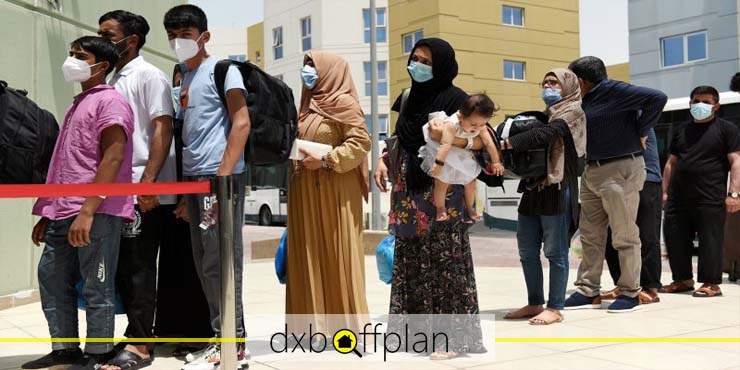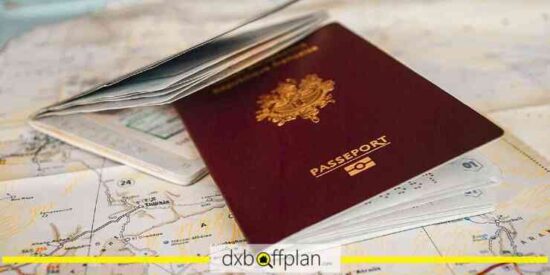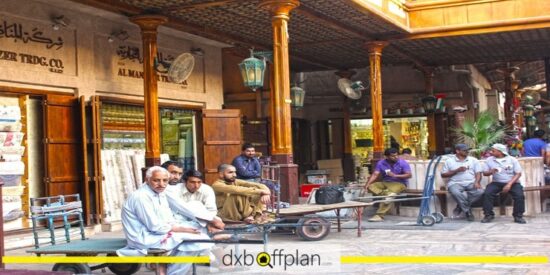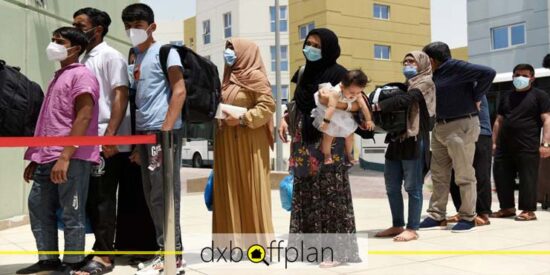Overview of Dubai Asylum-Based Migration
The United Arab Emirates (UAE) in recent years has become a key refugee and migration hub in the region of the Middle East. With its high development level and relatively peaceful political environment, the UAE is a magnet for immigrants and those in search of new horizons and security. Asylum is one of alternatives for getting a residence permit in Dubai, but most migration and legal professionals discourage it for its many complications. Nevertheless, for thorough information on conditions for asylum in the UAE, alternatives, and a full picture of 2026 requirements for it, follow through with this article by Dxboffplan.
Dubai Asylum and Residence
Dubai immigrants and refugees can apply for an asylum permit through a request to the government of the UAE. After processing, the government announces its ruling about the request. As a general principle, asylum is one of Dubai’s least preferred alternatives to immigration. In fact, the country has strong legislation for asylum that restricts its use. Alternatives such as buying property or trying for a UAE green visa can serve a refugee and immigrant far better. For instance, a refugee and immigrant with an asylum permit in Dubai will not get Dubai citizenship, but a two-year residence permit only.
Given that the UAE is not a signatory to the 1951 Refugee Convention, requesting asylum in such a state is a high-risk practice with disastrous consequences. In 2021, about 1,355 refugees were allowed entrance in the UAE, a 3.04% rise in 2020, and they were predominantly Syrian and Iraqi refugees. Persecuted persons, including those subjected to inhuman treatment in one’s country, can of course request asylum in the UAE, but one must seek alternatives that are less costly and troublesome if possible.
2026 Asylum Conditions in the UAE
Despite its considerable economic advances and high quality of life, there is no proper mechanism for requesting asylum in the UAE. Handling refugee affairs in the country is a role played by the United Nations High Commissioner for Refugees (UNHCR). In compliance with international refugee protection, including non-refoulement, UAE doesn’t send people to countries with a high chance of peril, but anyone requesting asylum in the UAE must present documents proving extreme religious, political, racial, physical, or financial persecution. In case of approval, they receive a six-month residence permit, but not for work, not for studies. Nevertheless, the main requirements for requesting asylum in the UAE in 2026 include:
- Facing danger in one’s country
- Having proper documents
- Staying in the UAE
- Presentation of financial documents
- Undergoing medical tests, physical examination, and fingerprints
Considering that over a period of time, laws regarding asylum in the UAE can change, one is advised to seek the most updated information through government websites or migration agencies.
Steps for Requesting Asylum in the UAE
The asylum application in Dubai is lengthy and fails in most cases. Nevertheless, to immigrate to Dubai as a refugee, follow these steps:
- Evaluate your Situation: Check Dubai suitability for your case through studying its life conditions, legal system, economy, and environment.
- Become a Registered Refugee: Apply for your asylum through relevant UAE websites.
- Document your Situation: describe and have a record of your life in your current country, and present your case through proper documentation.
- Review Application: Officials review your case, and it takes a long period, and your case can be approved or disapproved.
- Secure an Asylum Visa: Get your UAE asylum visa, in case your case is approved.
Representing your current lifestyle in a proper manner to Dubai officials will make your case strong for an approved asylum.
Required Asylum Application Documents in the UAE
Every country has its requirements for refugees for an asylum application. Asylum in Dubai requirements state that documents such as following must be produced for one’s application:
- Valid passport
- Application form
- Color photographs
- Proof and documents for your identity
- Proof supporting your claim for an asylum
- Statement of your financial position
- Educational and work documents
Dubai Asylum Methods
To immigrate to Dubai as a refugee, apply in person, and in case of an easier and convenient option, apply through Dubai’s asylum administration website. After your application, an interview with an applicant is scheduled, and then your results are communicated to you. Dubai asylum methods include the following:
- Dubai Asylum Visa: The most common Asylum Methods in the UAE involves applying for an asylum visa. After following the steps we explained above, your application is processed and an asylum visa is granted to you.
- Humanitarian Visa: Issued to individuals needing protection due to human rights violations, this visa requires detailed supporting evidence. Upon approval, a humanitarian visa is granted.
- Special Conditions Visa: For individuals with specific political, religious, or ethnic backgrounds needing protection, this visa is granted after submitting the necessary documents and evidence.
Benefits of Migrating to the UAE Through Asylum
Migrating to one of the Best Arab Countries for Immigration, through asylum, offers several benefits that can provide a new start for individuals fleeing persecution. Understanding the benefits we will briefly go through can help individuals make informed decisions about seeking asylum in the UAE. Here’s a closer look:
- High Security: Enjoy a high level of safety, as crime rates are low and citizens’ security is well-maintained.
- Cultural Affinity and Inclusiveness: The UAE shares many cultural similarities with middle eastern countries and maintains a welcoming attitude towards international residents.
- Geographical Location: Its location, being proximal to most of the home countries of asylum seekers, guarantees ease of return if conditions get better in the future.
- Quality HealthCare Access: UAE is proud of a highly advanced, modern health system, with appropriate health attention guaranteed to those in need of it.
- Humanitarian Support: Temporary shelter, financial support, and educational facilities are being provided by most international organizations and charitable institutions in the UAE for asylum seekers.
- Educational Opportunities for Children: The UAE offers different educational facilities where the children of asylum seekers can be admitted to international or public schools for further education.
- Cost of Asylum in Dubai: Normally, no fee is payable for application for an asylum visa. Any expenses incurred will normally be paid by the UNHCR.
Asylum seekers might have to pay some amount of expenses indirectly, such as for preparing relevant documents, traveling for their interview or for medical tests that are mandatory.
Challenges of Migrating to the UAE Through Asylum
You would not find asylum-based immigration on our 10 Best ways to get a UAE residency visa, as Asylum seekers in UAE may face several and severe challenges, such as:
- Lengthy and Complex Process: Asylum applications and status determinations can be time-consuming and complicated.
- Legal Limitations: Refugees may face legal restrictions and fewer rights compared to permanent residents or migrants.
- Psychological Impact: Asylum processing, such as uncertainty and tension in anticipation of a ruling, and trauma for past persecution are hard to deal with.
- Social Integration: Difficulty in social integration, such as language, culture, and difficulty in developing a community and social network in a new country.
- High Living Costs: The cost of living in Dubai can be high, posing financial challenges for asylum seekers.
Is Asylum-Based Dubai Migration a Wise Idea?
Every case is naturally different, and one cannot say for certain whether an individual will have a wise and safe move in terms of an asylum-based migration to Dubai. What happens when one seeks an asylum can vary immensely with individual circumstances, detail of persecution experienced, and one’s success in dealing with complex legal and bureaucratic processes involved in such a move. Some refugees will face a lot of difficulty, such as long processing times, financial burden through not being able to work, and restricted access to social welfare programs. The UAE doesn’t grant any rights to refugees, and refugees will not have access to The benefits of UAE residency.
On the positive side, a few will find a way to survive the situation, securing temporary haven and, in due time, a path towards integration in society. Intervention by groups such as the UNHCR and others can sometimes make a big contribution towards forging a new life for asylum seekers.
Based on such factors, a consultation with a migration advisor or solicitor about terms for asylum in the UAE is a wise move. Experts in such a field can give personalized guidance, explaining one’s legal options, preparing documents, and getting through the asylum process with a little less tension. Experts can even expose alternative migration channels that could work best in one’s individual case.
Final Words
In this article we tried to take a critical examination of terms for asylum in the UAE. As with any country, living in the UAE can have its benefits, but in most cases, asylum is not an ideal alternative for a variety of factors, including its long, complex process and uncertain success.
Alternative migration channels, such as property investment, and even incorporation of companies, could possibly work out best. For extra information about alternative residence and migration channels in the UAE, we at Dxboffplan are delighted to help and provide counsel. We are also delighted to help you find a house and update you on Dubai property prices as such investments lead to obtaining a visa as well.
frequently asked questions
The primary obstacles in requesting asylum in the UAE involve a long and complicated application process, sometimes necessitating a lot of documentation and proof of persecution. There is also high risk of encountering legal and bureaucratic obstacles that can complicate and slow down your cases. Asylum claimants also lack a general right to work, and therefore, cannot maintain a source of financial sustenance during the period of application. To make matters worse, the UAE is not a signatory to the 1951 Refugee Convention, and therefore, no proper mechanism for processing claims for asylum exists, creating uncertainty and danger for applicants.
No, a grant of asylum in the UAE will not allow claimants a path towards becoming citizens or attaining a grant of residence for life. Asylum claimants receive a grant of a temporary residence, for a period not exceeding two years, with no chance of converting it to a grant of residence for life.
The United Nations High Commissioner for Refugees (UNHCR) plays a key role in the UAE's asylum process, in consideration of a lack of a national system for granting asylum in a proper manner. The UNHCR assists in identifying and registering refugees, processing claims, and issuing relevant documents. In addition, the UNHCR assists in ensuring that the UAE adheres to international refugee protection standards, including the principle of non-refoulement, under which refugees cannot be returned to countries in which they will face danger.
To apply for asylum in the UAE, one must submit a full range of documents, including a valid passport and documents of identification. Asylum application forms must be completed and signed, with accompanying current photographs in colors. Most importantly, one must submit supporting documents for claims of persecution, including medical reports, police reports, or witness statements. Financial statements can be requested in an attempt to confirm one's financial position. School and work documents can serve to present a full picture of one's background and circumstances.
In most cases, no direct expenses apply when one seeks asylum in the UAE, in consideration of its intention to make its processes accessible to those fleeing persecution. Incidental expenses in relation to processing an application can, in many cases, be borne by the United Nations High Commissioner for Refugees (UNHCR). Nevertheless, one might have to pay expenses indirectly, such as for collecting relevant documents, for traveling for an interview, or for medical tests mandated by the state.












